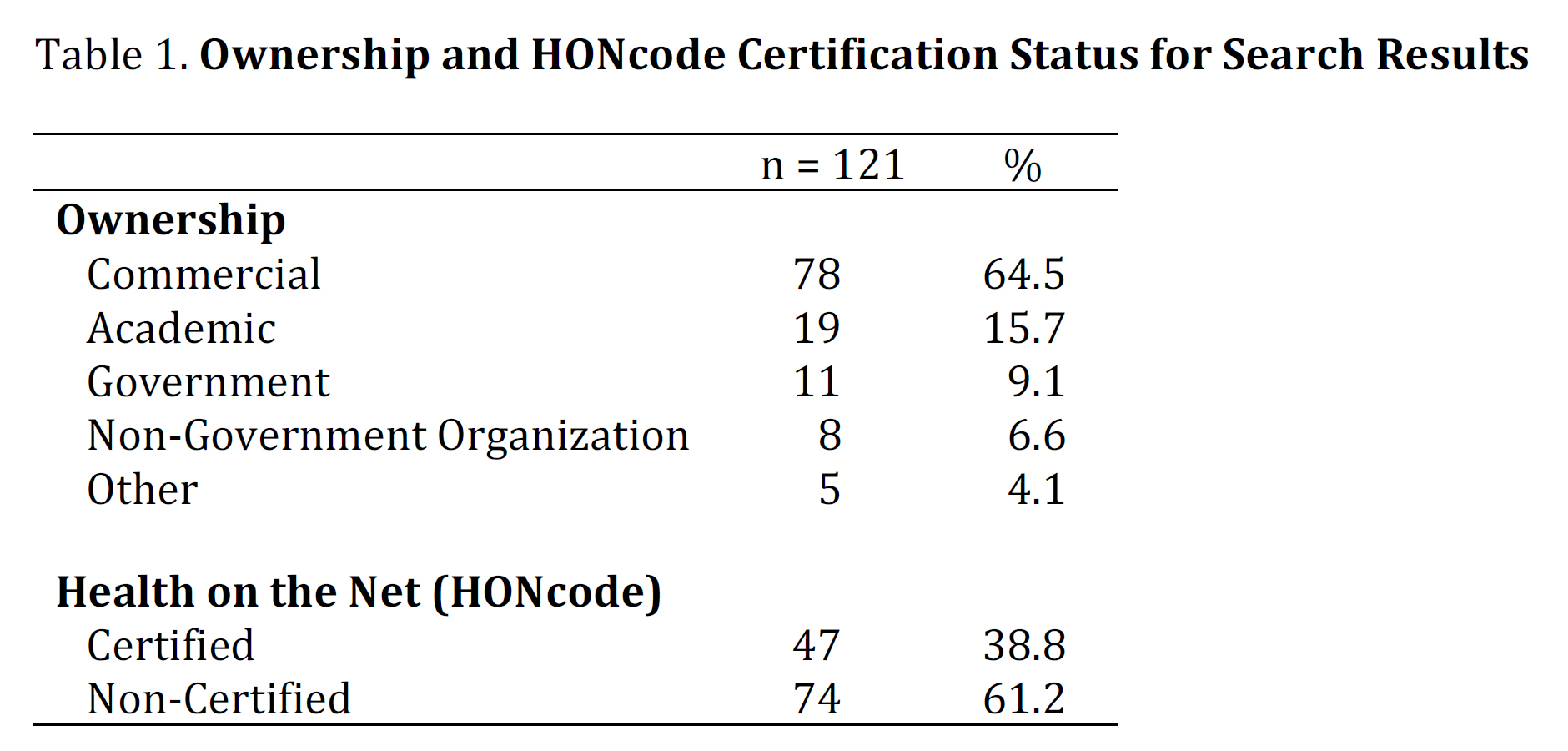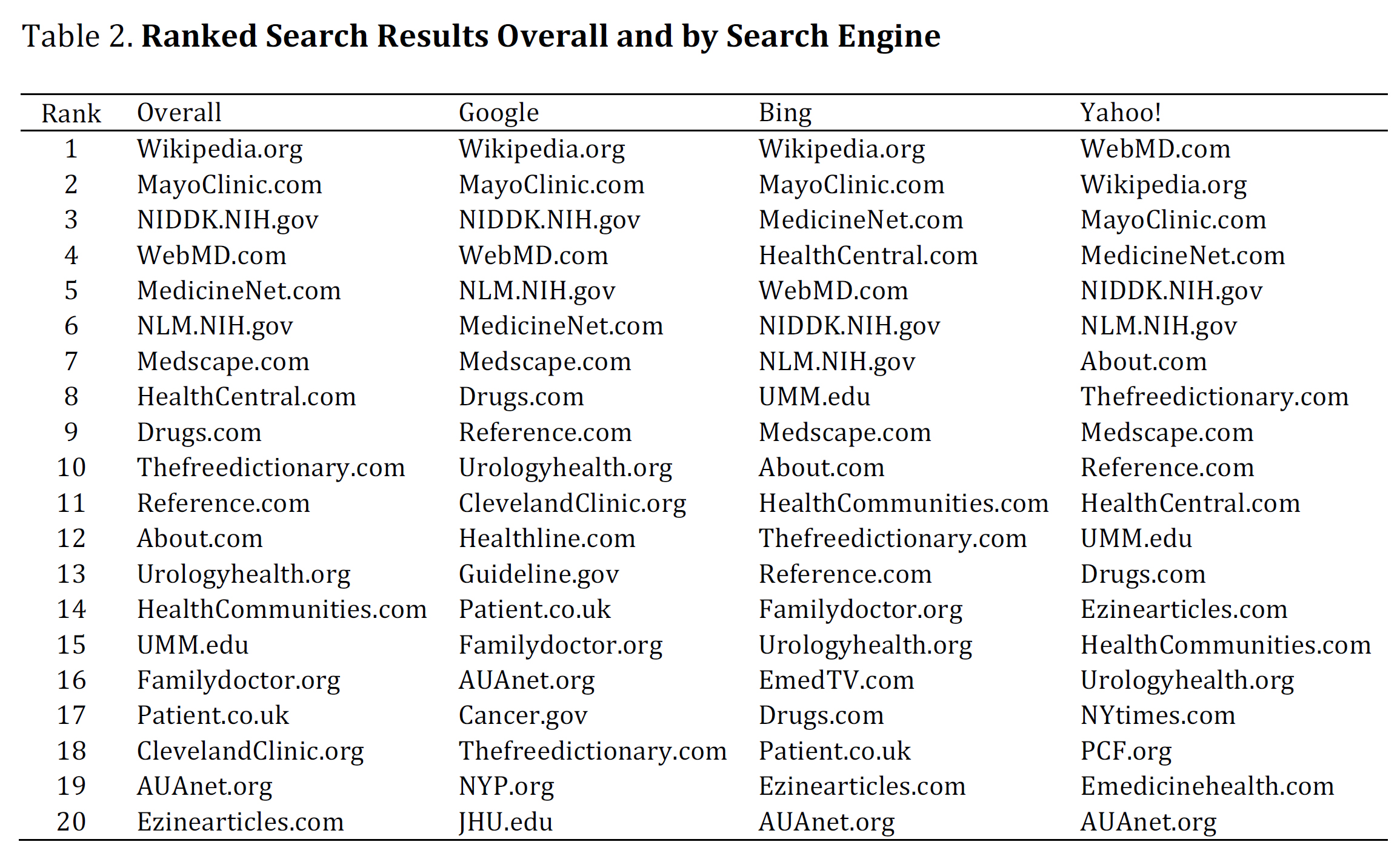|
Back to 2014 Annual Meeting Abstracts
Sifting through the Searches: What Do Patients Find on the Internet about BPH?
Kevin Koo, MD, MPH, MPhil1, Ronald L. Yap, MD, MBA2.
1Dartmouth-Hitchcock Medical Center, Lebanon, NH, USA, 2Concord Hospital Center for Urologic Care, Concord, NH, USA.
BACKGROUND:
Millions of men who are affected by benign prostatic hyperplasia (BPH) search online for information about recognizing, diagnosing, and managing their disease. However, the websites that appear in search results may vary widely in their sponsorship and reliability of content. This cross-sectional study analyzes the results of Internet searches for information about BPH.
METHODS:
Three search engines accounting for 96% of Internet search traffic (Google, Bing, and Yahoo!) were queried for the keywords, “benign prostatic hyperplasia,” “prostate enlargement,” and “BPH.” Queries were performed daily for one month to account for variation in the rank order of results returned. The first 20 non-sponsored, English-language results were recorded because the majority of search-engine users conclude their searches after browsing the first two pages of results. A ranking system was used to score the results of each query: the first site listed in the results was assigned 20 points, the second site was assigned 19 points, and so on; these scores were used to determine overall ranks over the month-long collection period for each search engine, as well as cumulatively. For each website, the Internet address, domain, and owner/sponsor were recorded. Each was also cross-referenced for “HONcode” certification, an international designation by the Health on the Net Foundation for reliable online sources of health information.
RESULTS:
One hundred twenty-one unique links were returned after 30 queries for the three keywords using the three search engines, totaling 270 online searches. A majority of the sites returned in the searches (78 sites, 64%) were owned by commercial or for-profit entities (Table 1). The next most common sites were sponsored by academic medical centers (19 sites, 16%) or government agencies (11 sites, 9%). Most sites (61%) across all search platforms and Internet domains had not received “HONcode” certification. After cumulative ranking scores were determined, 12 of the 20 (60%) sites most commonly viewed across all search platforms were commercially sponsored (Table 2). The five highest-ranking website domains were Wikipedia, Mayo Clinic, the National Institute of Diabetes and Digestive and Kidney Diseases, WebMD, and MedicineNet.
CONCLUSIONS:
Patients who search online for information about BPH frequently encounter websites that are commercially sponsored and have not been certified by the “HONcode” standard as reliable sources of health information. Because the content of these sites may be biased by financial or business interests, providers should become familiar with the varying reliability of Internet material that patients access to facilitate greater health literacy about urological disease.
 
Back to 2014 Annual Meeting Abstracts
|

|

